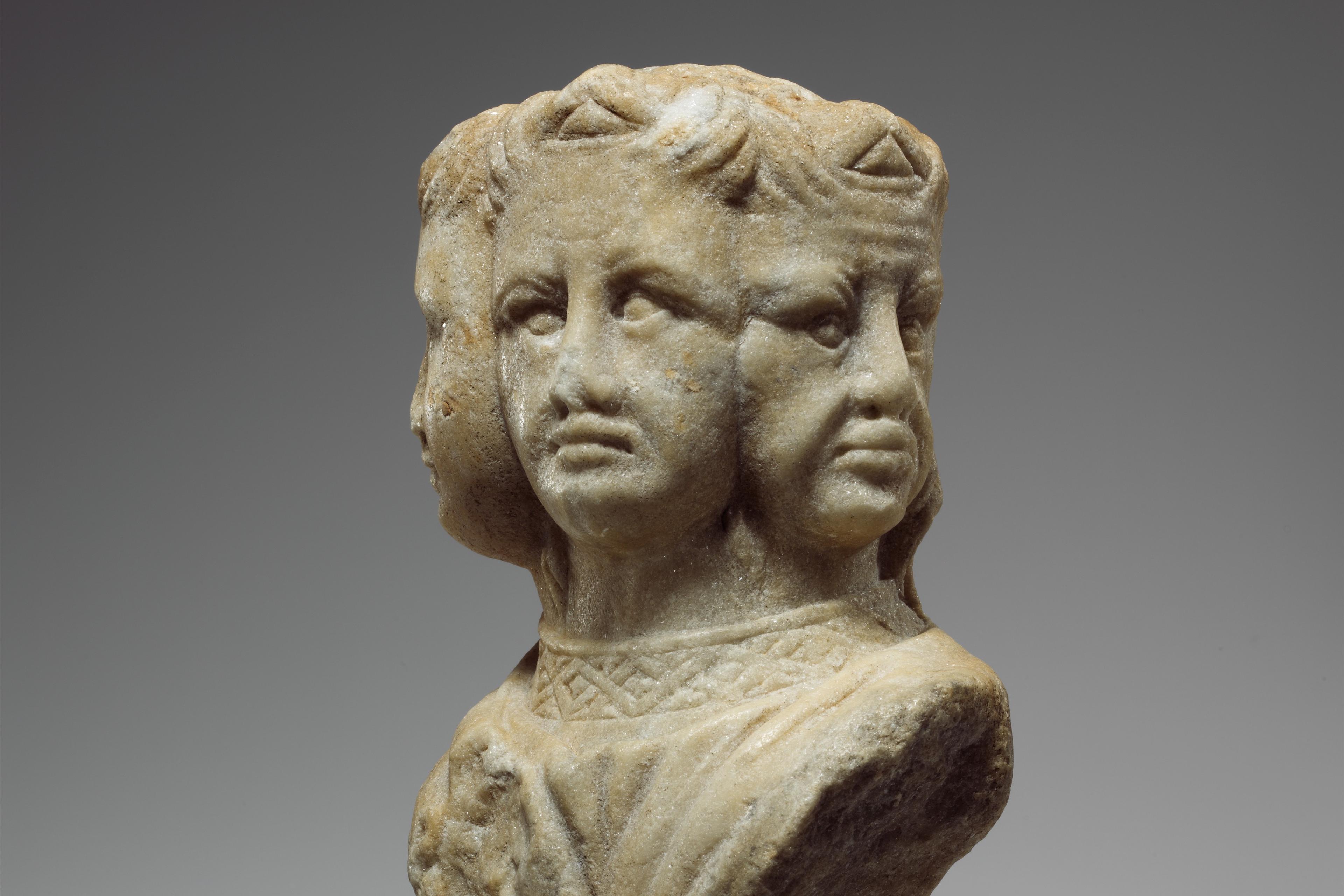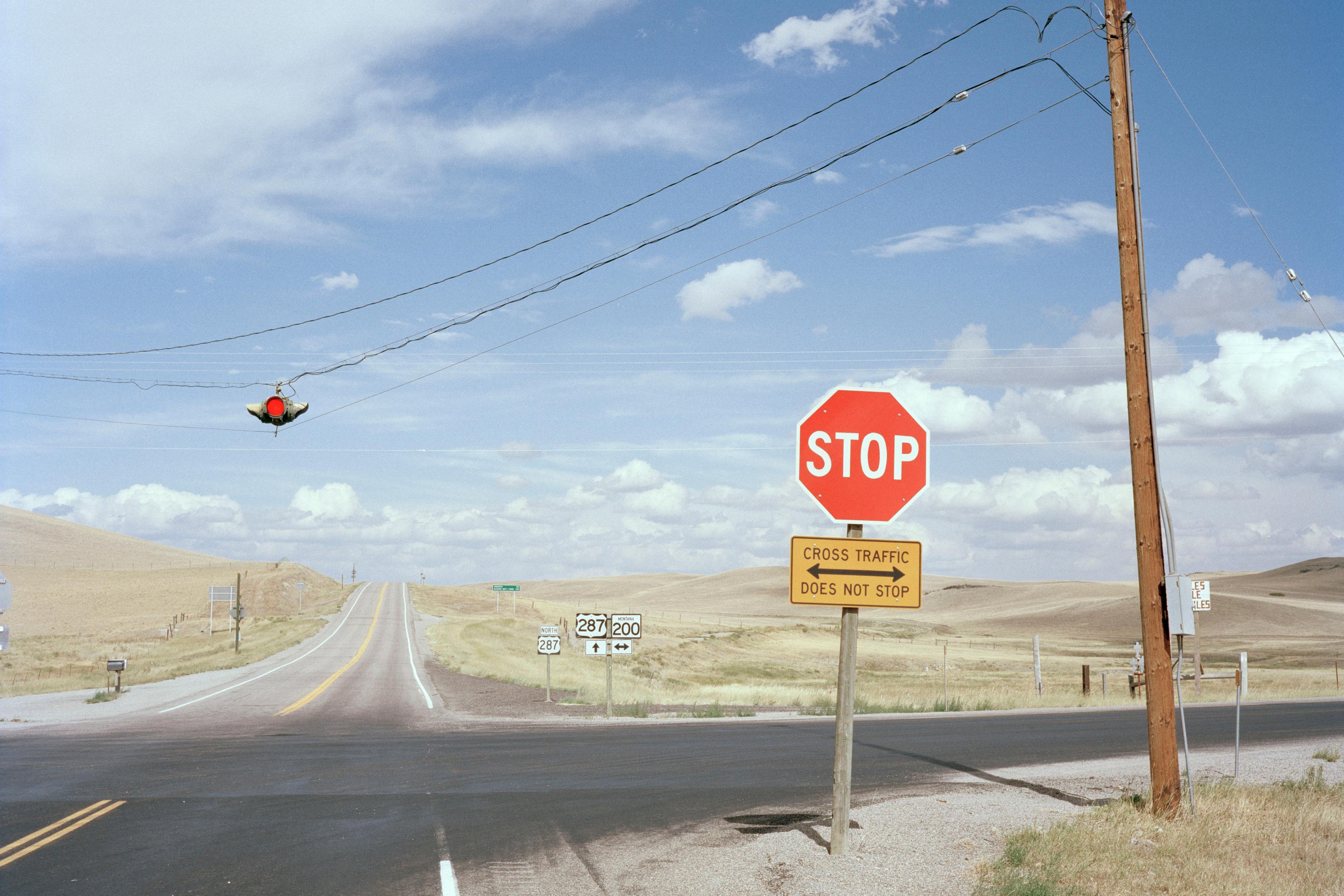Philosophical accounts of truth and knowledge have long been in the grip of diabolical doubt: how can I get hold of the truth and be sure that I have done so? The truth is uncertain, and our search for knowledge is precarious. Epistemology is shot through with anxiety. Moreover, the diabolical strategy of René Descartes forces a reductive response: even if I might doubt anything else, my own existence, in my doubting, cannot itself be doubted. My wobbly falsehoods are eliminated by secure foundations for whatever I believe.
There is a parallel, though less recognised, problem about falsehood. For in supposing that falsehood could turn up anywhere or even (subject to diabolic interference) that it might be everywhere, we’ve missed the risk that falsehood might be nowhere at all. In the face of the worry about truth, a worry about falsehood might seem insignificant. After all, truth – so we might think – is what matters. Truth gets us to the market, to the train in time, to our nearest and dearest. Falsehood – so we might think – is useless or worse. Falsehood can’t help us in our ordinary lives, it can’t do anything for us, because it’s not true. But, in the early stages of Western philosophy, falsehood – not truth – was a dominant concern, and it generates a quite different anxiety, one we might find familiar today. That worry could help us to see that falsehood itself matters.
One argument goes like this. Suppose that truths are made by what’s out there, by pieces of the world becoming represented in propositions (or whatever). Falsehoods then are exactly not made by what’s out there. If truth is made by correspondence with what’s real, does falsehood correspond to nothing? But how could nothing make anything – including falsehoods? And if we get hold of truths by coming across their truth-makers in the world, how do we get hold of falsehoods if their makers just aren’t there?
A different argument goes like this. My perception of the world is private to me, and true for me. If that is so about my perception of the world, then why not for all my views of things? In that case, surely all my views are true (for me), and perhaps there’s no view from which they can be controverted. Yet we do seem to say things that are false: but how could that be true?
Some ancient sophists used these arguments to suggest that we don’t say things that are false at all. The right contrast is not between saying something true and saying something false, but between saying something true and saying nothing at all. This is not hyperbolical doubt, but hyperbolical certainty. Being right, then, would happen in a sequence of truths one after the other; expertise would be just the accumulation of more and more truths. Hyperbolical certainty’s exponents cannot be refuted, because to refute them is to show that what they say is not true, and so it begs the question against them. This position (on whichever argument) is useful: their clients will all get off scot-free in court, and their satellite politicians can declare their own truths without fear of rebuttal.
If truth just is what someone says when they say it, they can’t be gainsaid – so they aren’t accountable at all. If truth is everywhere, an opponent doesn’t say what’s false – she simply says nothing at all. The choice, then, is not between truth and falsehood, but between truth and meaninglessness, between saying what’s true and saying nothing at all. This suggests that no single saying can have any bearing on another – if all telling is truth-telling, there’s no such thing as showing someone wrong. This, in turn, renders it impossible to call anyone to account, since scrutiny is simply the questioning of whether someone might be wrong. That failure of accountability is pervasive in times of crisis, as we know all too well. But without accountability, any crisis can produce many more. Accountability, once discredited, is desperately hard to revive.
We know now just how dangerous hyperbolical certainty can be. The danger arises in part from Descartes’ demands that truth should have foundations. Hyperbolical certainty resists foundational principles (including the demands of consistency): if someone insists on ‘truth or nonsense’, they can’t be refuted in terms they accept. They can be voted out, of course: but that might be resisted by the believers – their opponents are just making noise.
Plato disagrees with the sophists and (perhaps surprisingly) defends uncertainty: falsehoods can be not-true without being empty. Truth needs defending, not by making it ubiquitous, but by making falsehood possible. However, this defence has to be indirect: the significance of falsehood needs to be understood contextually just because it can’t be demonstrated or shown at the foundations of truth. Plato starts with false statements: when someone combines a term that correctly refers and a predicate describing a property that exists but doesn’t belong to this referent, the statement that ensues might be false. (For example: ‘Frank the Fox is fulvous’ might be false, so long as there is a fox, Frank, out there for me to refer to and he doesn’t have the character of fulvousness, but is instead a rather grubby brown. Matters are, famously, different when a sentence’s subject term fails to refer; try talking about the present King of France, and the puzzles of falsehood reappear.)
But that deals with only a part of the problem. For when that happens, how does it happen? The mistake, it seems, lies not in the world (for, then, the combination of Frank and fulvousness would represent a truth) but in the combining: in mistakes made by the mistaker. This is a matter, then, not of sentence structure, but of the mind of the person who utters them, who wrongly attributes fulvousness to the fox before her: then what’s needed is an explanation of how that attribution fails. But the explanation of falsehood seems then to rely on a malfunctioning of the mind of the false speaker. If falsehood matters, can it really be explained by a malfunction? Is the idea of a ‘mistaking mind’ just a hopeless piece of Platonic pessimism? And, if it is, can it do the work of protecting the possibilities of truth? I propose that it can. In fact, it’s fundamental to the response to hyperbolical certainty that we’re possessed of mistaking minds, and that we recognise it.
Consider the development of effective dispositions for managing our way in the world. We might begin to understand this by thinking about skills. Suppose that I want to learn to play the piano. To do that, some initial success might be useful (I learn how to play the piano by having my early notes sound right) – but not all the time. For, as I come to make mistakes (as what I play gets trickier), they become noticeable exactly because they don’t work. The discord in my sight-reading, for example, shocks me into checking the music, and makes me take more care. The mistakes I make get me to pay attention, and to get better at the piano as I do.
We might think the same thing is true of broader dispositions and capacities. Failure has a dismal property of self-intimation: when our purposes go awry, the mistakes themselves bring us up short. Once we notice mistakes, because they’re maladaptive and disrupt our purposes, we seek not only to put them right, but also to get better at avoiding them. So we see mistakes, reflect upon them, manage what we do next in order to avoid them, and seek improved ways of working, better dispositions to act. It marks progress towards knowledge, understanding and the capability for success: mistaking is well adapted.
Perhaps, then, our progress towards truth and knowledge works in the same way, even in the most abstract cases. Truth, to provide us with an effective disposition towards it, really needs falsehood. If this is how our mistaking minds progress, we don’t accumulate truths piecemeal but we develop a mental capacity that’s truth-orientated and successful, and we develop, especially, by being wrong. For that, the noticing and acknowledging of mistakes is vital, and we’re assisted by good epistemic character: honesty, perseverance, patience.
Plato gets this. He also understands, as a consequence, the place that falsehood occupies in the defence of truth. He insists that the sophists are to be refuted not directly, but indirectly: for the denial of the possibility of falsehood can’t be sustained in an extended argumentative exchange. This proposal has, he supposes, a corollary: that the understanding or knowledge we seek is founded on dialectical exchange – on the exposure of one’s views to the scrutiny of another, in showing that one view is true and another false. Knowledge is thus not a solitary business, it’s what we do together. Knowledge is fundamentally accountable: we’re knowers, wise, experts, only when we give an account to another person and receive it from them in turn. And this view of knowledge as accountable, Plato argues, should replace the greedy simplicity of hyperbolical certainty.
Then the context of epistemic progress becomes richer still. Truth and falsehood matter across the board, most notably in the formal process of accounting that belongs to politics. If accountability is central to knowing, rather than an extra constraint on the political process, we’re already enmeshed in obligations to others, in attitudes to how others see us and demands upon them to meet our joint enterprise, together: just in order to navigate the world amid uncertainty. For Plato, therefore, knowledge begins not with ‘I’ but with ‘we’: and amid his account of falsehood and the mistaking mind, we can see why. For there is a central connection between questions of character and questions of certainty and doubt. Cartesian scepticism drives a kind of nasty solipsism, to which Platonic joint enterprise provides a vital antidote. As for hyperbolical certainty, monstrous narcissism might be irrefutable in its own terms. But grant once the community of accountability, and the narcissist eventually gets voted out.








